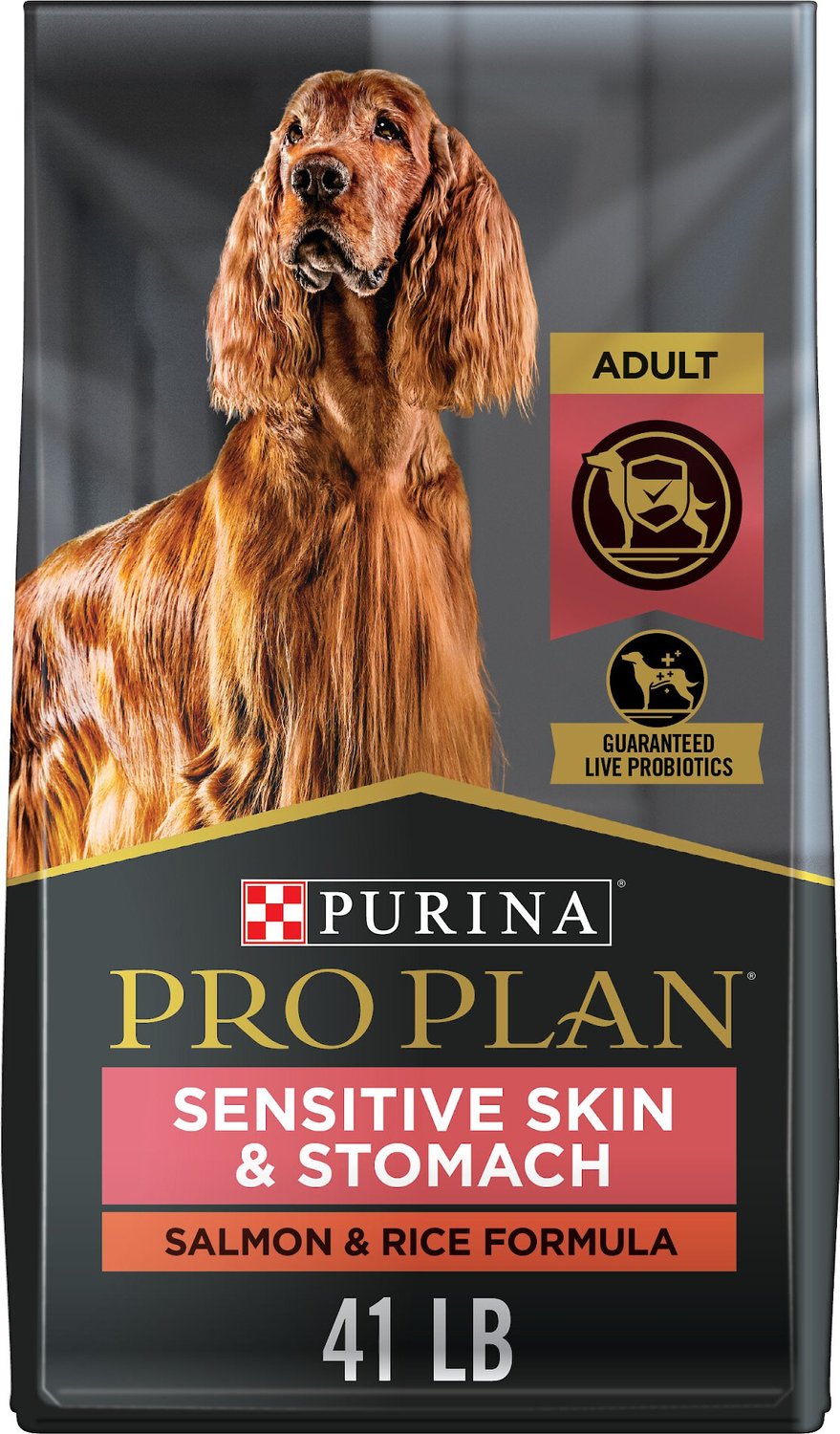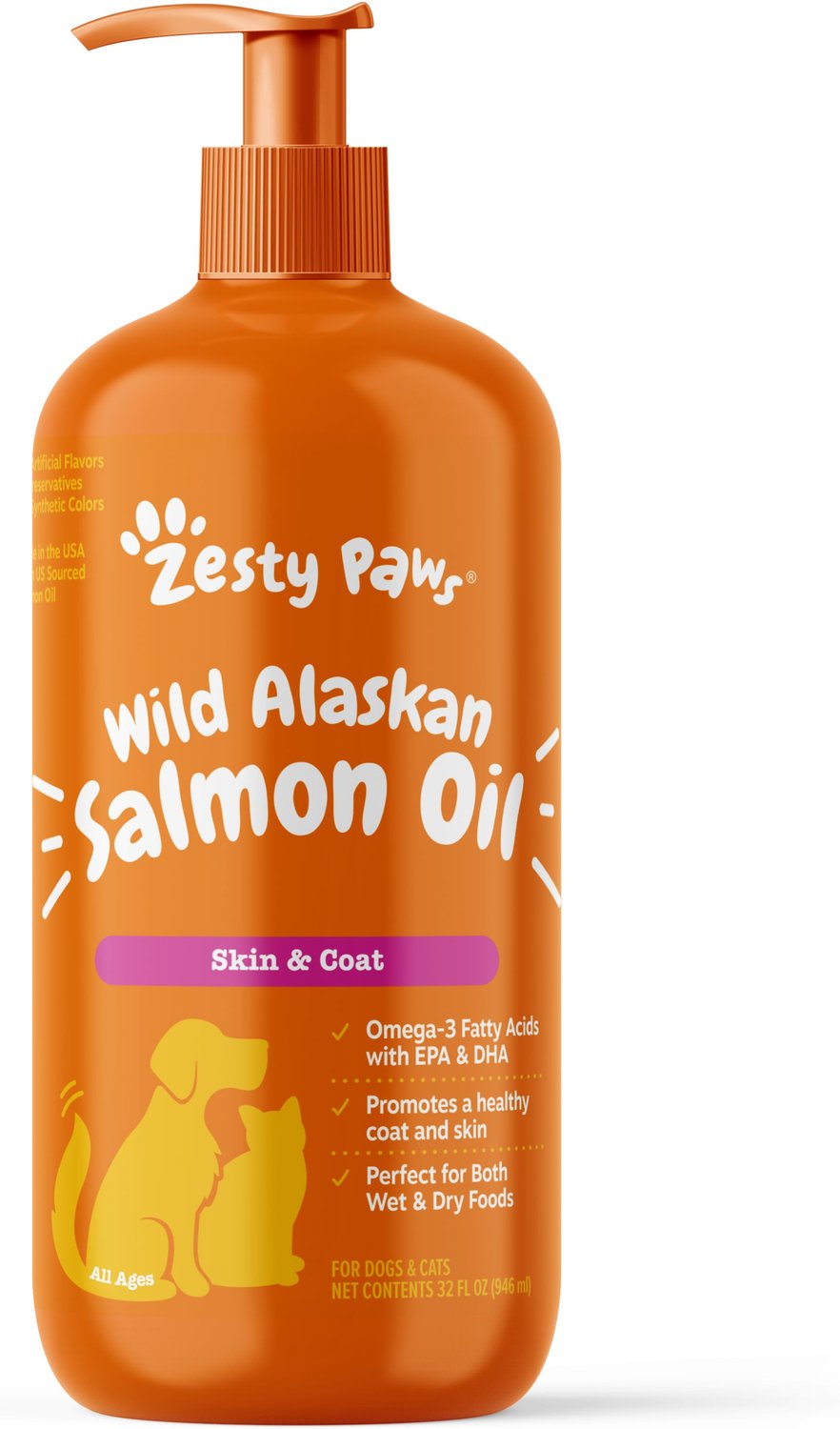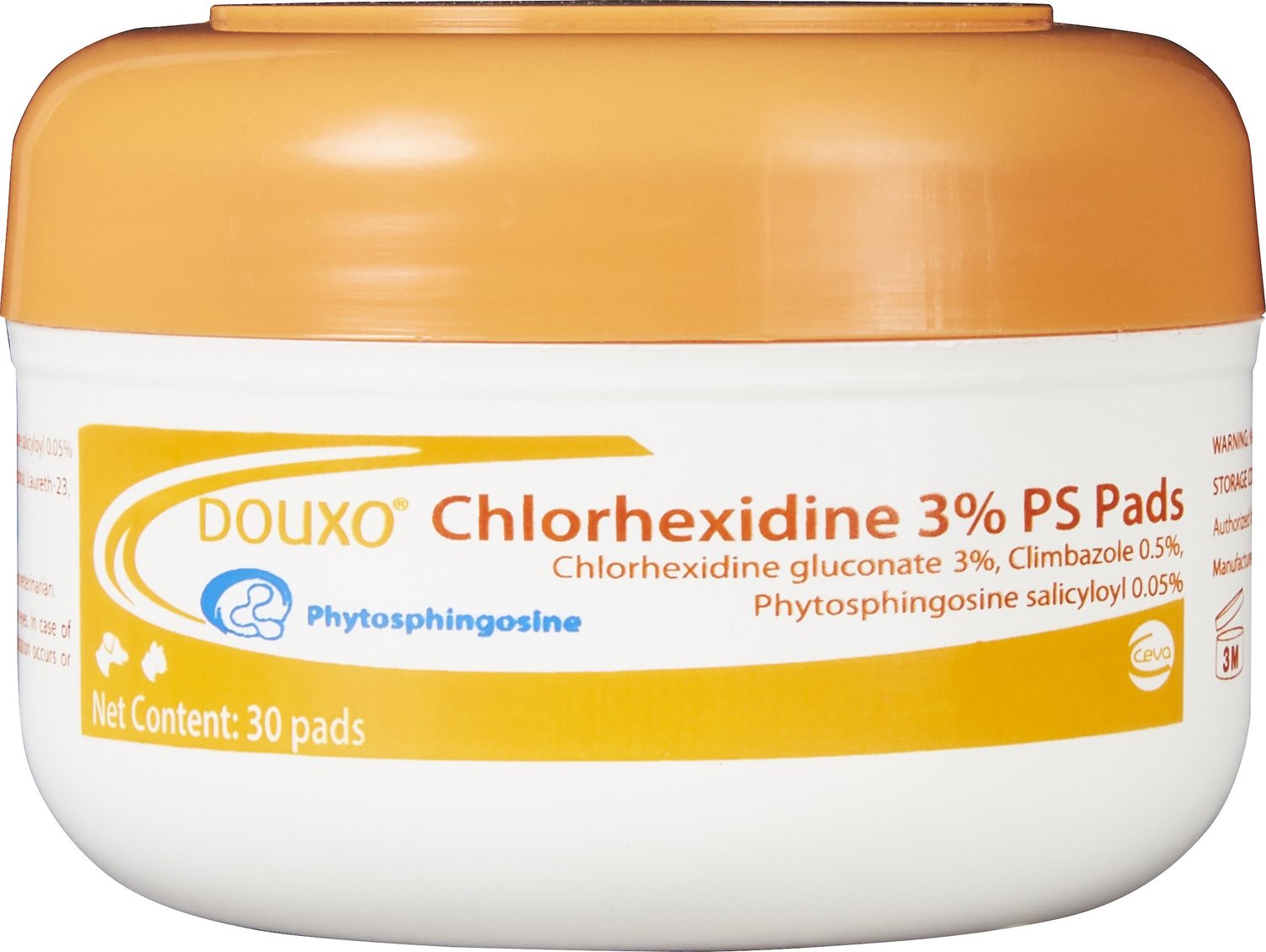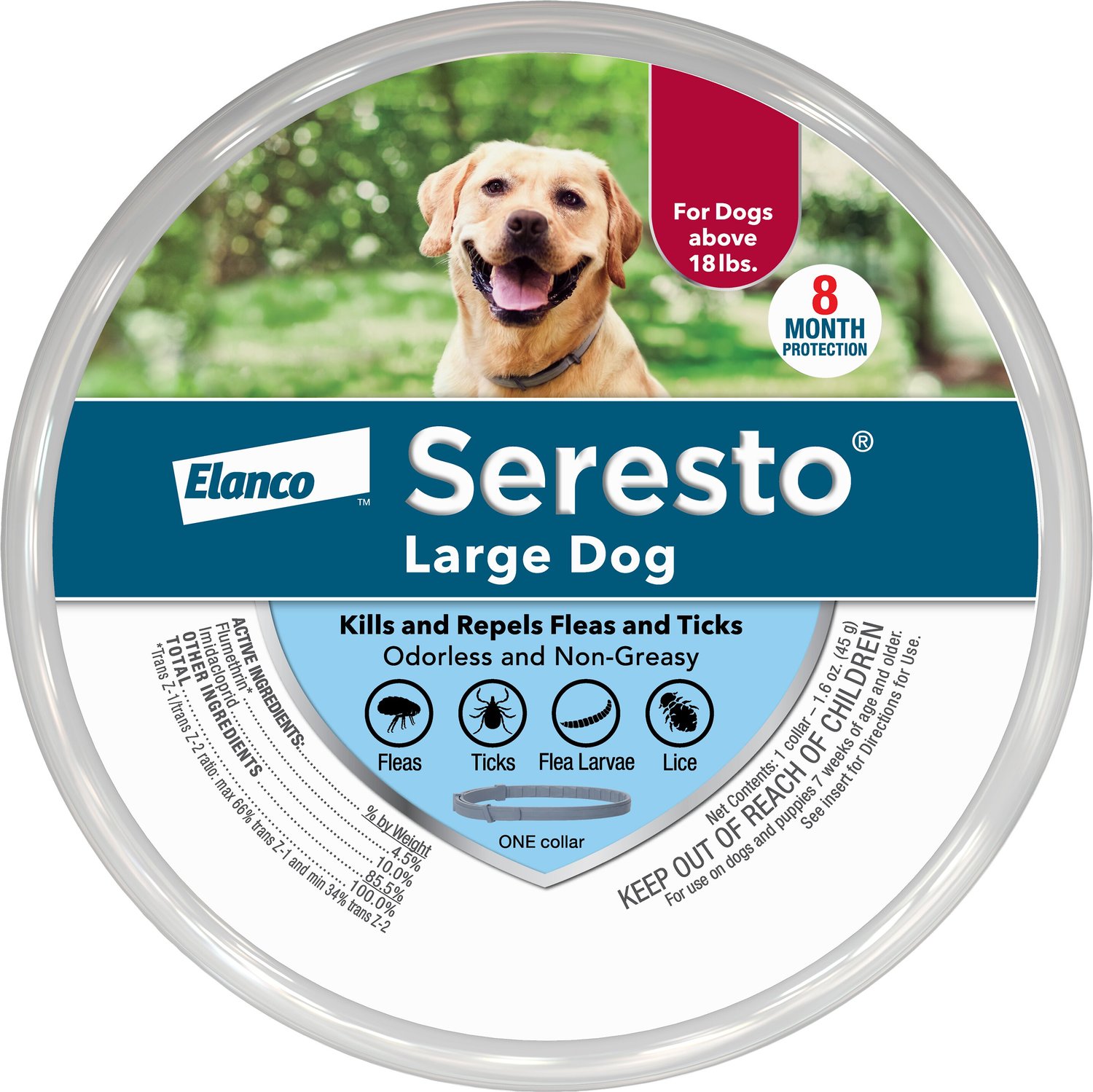Dry, Itchy Skin on Dogs and How to Treat It
We could talk longer about itching. We’re just scratching the surface.
Is your dog’s itching making both of you miserable? There are a few usual causes, and some not-so-usual. It’s never a bad idea to take your dog to the vet for proper diagnosis, but there are some common issues you may be able to identify at home. We’ll explain how each of these might result in dry skin on your dog as well as different treatment options. Let’s see if we can achieve an itch-free home!
What causes itchy skin on dogs?
Dry, itchy skin on dogs can result from a number of factors, which can make it difficult to pinpoint the issue and find an effective treatment. In fact, itching is among the top four reasons why pet parents bring their dogs to the vet. Some common issues may be easy to spot, while some may be a little more complicated. Keep in mind that determining the cause of any issue is a process that takes time and patience, so don’t get discouraged if it’s tough to figure it out right away.
Allergies
According to a recent study, allergies alone affect 10-20% of dogs (and cats) worldwide. An allergy is basically the body’s immune system overreacting to a certain allergen it thinks is a threat — even though it isn’t — and allergens can come from a number of sources. Dry, itchy skin on dogs can result from environmental allergies, food allergies, or flea-related allergies. In some cases, it’s a combination of these factors, which can be frustrating for pet owners trying to narrow down.
Determining the source of your dog’s allergies is essential in not only relieving the itching but also in preventing other issues from developing. Untreated allergies and itchiness can result in other harmful conditions such as skin infection, open sores, or rashes.
Allergy Symptoms
Allergy symptoms in dogs include skin dryness, flaking and itching. These can occur in a specific location, such as the paws or armpits, or all over the body.
In some cases, your dog’s respiratory or gastrointestinal systems might be affected as well. Respiratory symptoms might involve wheezing, coughing, or eye/nasal discharge, while allergy symptoms in the gastrointestinal system may include diarrhea and vomiting.
Allergy Causes
As we discussed earlier, allergies result from interaction with specific allergens. In most cases, these include allergens from food, the environment, and/or fleas.
Flea Allergy Dermatitis (Fleas) is an allergy issue that occurs when your dog has a reaction to a flea bite. It usually only takes one flea bite for your dog to suffer through several days of itchiness, so you may not even see evidence of the guilty flea(s) when you check. This makes things a little tricky. But we do recommend checking for fleas first because it’s the easiest place to start. You can do this yourself by combing your dog with a flea-comb. These have thin, compact teeth that help capture any fleas or flea dirt. If you find evidence of fleas, you will need to treat your dog as well as your home.
Environmental allergies are often seasonal. This is why you may notice your furry friend becoming significantly itchier at certain times of the year. It’s also possible for the allergen to be specific to a certain location, such as areas with certain grasses. Make sure to check for fleas or parasites, but if your dog’s symptoms are syncing up with outdoor play, or by season, you’re likely looking at environmental factors.
Food allergies obviously indicate an issue with your dog’s diet. In most cases, food allergies are related to the protein in your dog’s food such as chicken, beef, lamb, or gluten (from wheat). Since so many foods have a mixture of potential allergens, you may have to undergo a food trial to rule out or identify specific food-related causes.
Parasites
Parasites in or on your dog will also result in itchy, dry, or flaky skin on dogs. It’s a common misconception that parasites are only found outdoors or in unkempt houses, but this is not the case. Parasites can be found even in the cleanest of homes or on the best-groomed dogs.
Parasite Symptoms
If your dog is suffering from itchy skin related to parasites, there are a number of symptoms they might experience ranging from mild to severe. The majority of pets experience itching and skin irritation such as redness and swelling. However, in more severe cases, you may also notice hives, lesions, a red rash, or a loss of fur in certain areas.
You can confirm the presence of some parasites, such as fleas and ticks, by using a flea comb or thoroughly checking your dog’s skin and fur. Intestinal parasites are much more difficult and unpleasant to try to find; in the potential case of internal parasites, you’ll want to check their stool for worms.
Causes
A variety of parasites can cause dry skin on dogs as a result of itching. A few of the most common are sarcoptic scabiei (aka scabies), demodectic mange, and intestinal parasites (such as tapeworms and hookworms).
Parasites can be found in your dog’s ears, under their skin, in their intestines, and more. The itching results from movement, biting, or general irritation.
Parasite Treatments
Your dog’s vet will need to examine your pet to diagnose them with parasites. This might mean taking an ear swab to check for ear mites under the microscope or collecting a fecal sample.
The good news is that most parasites are easily treatable once identified. Your vet will begin a course of medication that can start working within just a few days.
Infection
An itchy dog might also be suffering from a skin infection. Even the most observant pet parents may not notice a skin infection right away, so it’s important to monitor for initial signs of dry, itchy skin.
Infection Symptoms
As with the other medical conditions on this list, itching and flaking skin on dogs are some of the first signs of a skin infection. However, it may not be apparent the issue is related to an infection until other symptoms develop, like redness, inflammation, discoloration, and warmth in the bothersome area. In more severe cases, you may also notice hair loss, broken skin, and discharge.
Infection Causes
Skin infections are typically a side effect of another health issue, like a mild scratch or scrape that later became infected. These initial wounds may come from playing, but it’s also common for a dog’s scratching, chewing and licking (from allergies or fleas) to cause wounds that become infected.
Infection Treatments
You’ll need to visit your vet for diagnosis and treatment of a skin infection. They may choose to conduct a skin scrape that the veterinarian will examine under the microscope. Commonly, topical treatments such as ointments or shampoos, are then recommended. For more severe cases, the doctor may also suggest an oral antibiotic.
Keep in mind, it’s important to treat any conditions that led to the infection as well, so your pet may need additional dog itching treatments to address both the infection and the cause.
Preventative Skin Nutrition
Diet plays an important role in the prevention and, in some cases, treatment of dry, itchy skin on dogs. This includes making sure your dog is receiving the right nutrients. The good news is that most commercial dog foods factor in skin health when formulating diets your dog. However, pay attention to budget foods and home-cooked diets to make sure the food is properly balanced. Our nutrition team has also developed a list of foods for skin health, as well as nutrition tools to help you make sure you find the best food for your dog.
Top Recommended Skin Health Products
If you want to boost skin and coat health or help with dry skin on your dog, there are a few ingredients that are especially important to consider:
Omega-3 Fatty Acids
Vitamin E
Salmon Oil
Adding a small amount of Omega-3’s to your dog’s food helps reduce inflammation, fight allergies. It’s also great for promoting the health of your dog’s skin, coat, brain, and joints. While Vitamin E and Salmon Oil boost the immune system and help reduce skin flaking.
Nutrition for Great Skin Health for Dogs

Pro Plan Sensitive Skin & Stomach, High Protein Adult Dry Dog Food

Pure Wild Alaskan Salmon Oil for Dogs & Cats
Itchy Skin Relief for Dogs

Clinical Care Hot Spot & Itch Relief Spray

Chlorhexidine 3% PS Pads for Dogs & Cats
Parasite Management for Dogs

Seresto Flea & Tick Collar for Dogs

Chewable Flea and Tick Treatment for Dogs
Get Your Dog the Itch Relief They Need
Dry, itchy skin on dogs is incredibly common. It’s also incredibly frustrating for pet lovers everywhere because it’s difficult to see your dog’s discomfort and not know how to help.
Solving the itchy skin mystery is a process, but it’s not impossible. The best thing you can do is pay attention to any symptoms as soon as they develop. If you have any uncertainties, it’s worth talking with your dog’s vet to determine appropriate treatments.
If you want to proactively keep your dog’s skin and coat healthy, start them off with balanced nutrition and preventative parasite control to promote healthy skin and coat.

